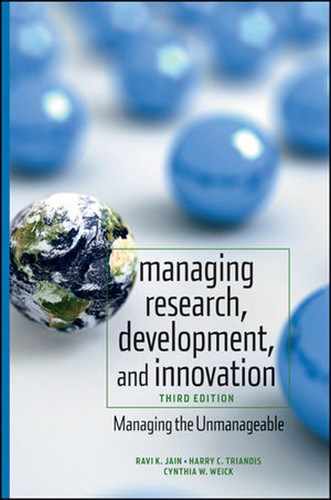Chapter 6. MOTIVATION IN R&D ORGANIZATIONS
Goals determine a substantial amount of human behavior (Locke et al., 1981). Motivation to achieve these goals is a major factor in researcher performance and in organizational effectiveness. For these reasons we devote a full chapter to this topic. Individuals have goals and organizations have goals. For maximal organizational effectiveness it is important to make these two sets of goals compatible. In fact, that is the major role of management. The R&D manager must have a clear understanding of both sets of goals and find ways to make them similar, overlapping, and at least noncontradictory.
Organizational effectiveness depends on (1) individual motivation for organizational effectiveness (i.e., individual goals that are compatible with the goals of the organization), (2) individual performance (just because one has the right goals does not automatically result in effective performance), and (3) adequate coordination of individual performances.
Performance depends on more than motivation. One must have adequate skills and abilities and proper training, and there must be a good match between the individual and the organization's goals. Coordination depends on adequate communication, and it can be improved when there is participation by employees in decisions that affect them and when organizational goals overlap with personal ones.
In order to understand performance better, it is useful to focus on a model that links the probability of an act to particular determinants.
